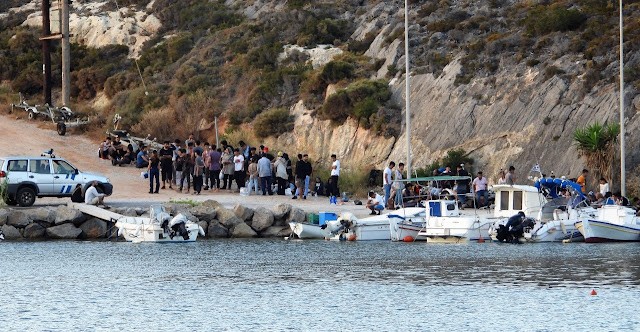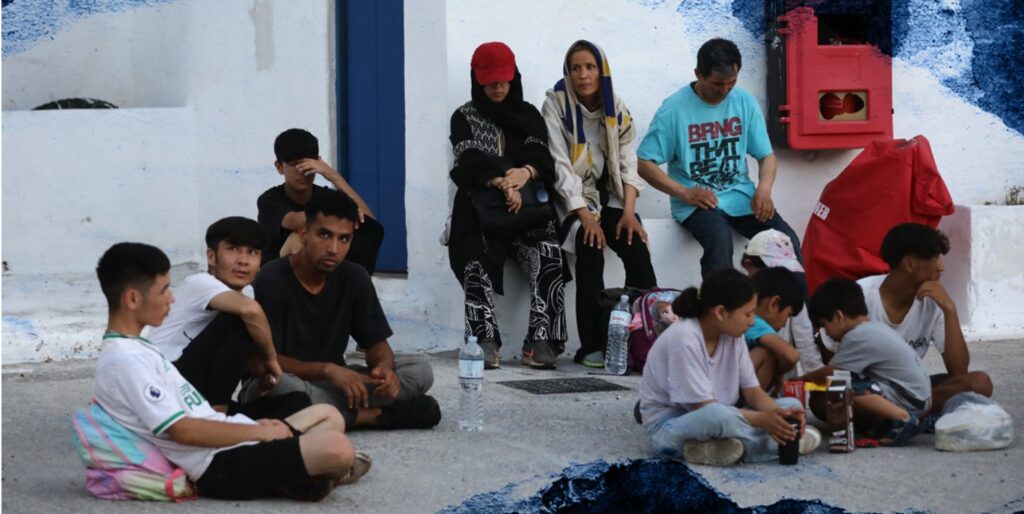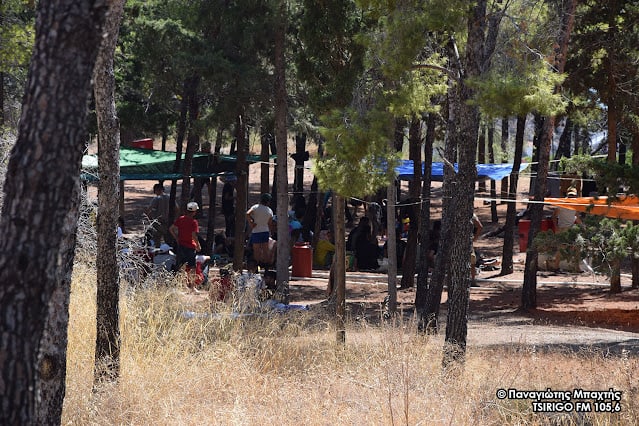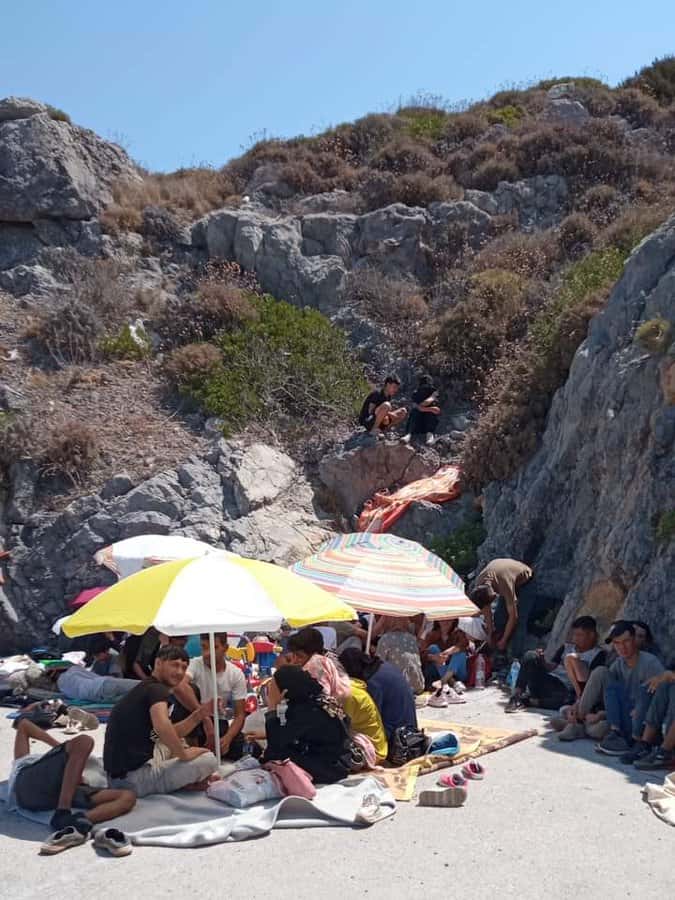This was no mythical embarkation to 'Cythera' as the idyllic pilgrimage, as Aphrodite's birthplace is depicted in the art of the French artist Jean-Antoine Watteau.
In the early hours of 17 August a sailing boat operated by Turkish people smugglers and carrying 97 people, 55 of whom were children, ran aground in the little bay behind Kapsali on the southern shores of Kythera. Within hours, a second boat arrived at the main pier of Kapsali, with 73 people on board. And then the next morning another boat came to grief in the bay of Limnionas on the western side of the island, with 71 people crammed inside

Kythera was once again experiencing, as have other Greek islands in the Aegean, the brutal reality of hapless refugees and displaced asylum seekers taking the Mediterranean passage in a desperate attempt to escape war, conflict and persecution.
Only this time more than 200 refugees, mostly from Afghanistan, ended up on the island within hours. How did the islanders respond to this human tragedy unfolding?
According to the UN Refugee Agency, EU States have a clear responsibility to offer them protection, and an obligation to rescue people in danger at sea. There has been a major increase in refugees and migrants taking the eastern Mediterranean route from Turkey to Greece as the Erdogan regime tries to weaponise refugee flows in its neo-Ottoman tirades against the West.
Unfortunately, this has also seen a rise in xenophobia and refugee-bashing in some quarters when humanitarian impulses should prevail, including providing a dignified reception for desperate refugees before they are relocated for processing.
When news spread through the island of the arrival of these boats – which many regard as “irregular” or “illegal” maritime arrivals – the reaction of many locals, including Australian-Greeks vacationing on the island, and tourists was swift, decisive and, above all, compassionate.

The call went out for women's and men’s clothing, shoes, toothbrushes and toothpaste, and food to help the unfortunate. Small bottles of cold water were also desperately needed because the extreme heat was oppressive.
Many of the refugees were left to sit on the concrete ground of the pier at Kapsali in sweltering heat during a hot summer's day while tourists literally swam metres away in the bay. Some bought umbrellas to provide them with shade because the shade promised by the local authorities did not eventuate. Many of the refugees were eventually provided with a makeshift shelter in a nearby camping ground after volunteers had cleared the thicketed area, made them fire safe and cleaned the toilet facilities.

At the picturesque bay of Limnionas, the locals banded together to get the refugees food and water and the young children were allowed to swim in the heat of the day.
Meanwhile, the local mayor categorically stated that the island would not become a “repository of souls” and insisted that Kythera was not equipped to house refugees, even on a temporary basis, and rejected the notion that the refugees be temporarily housed in local schools until they were taken off the island for processing by the Greek State Coast Guard. He even lashed out at some of the volunteers who came out publicly to help the refugees, describing them as "hypocrites" who could have put some of the people up for accommodation in their own homes if they were genuinely concerned for their welfare.
One of Kythera’s leading citizens, the acclaimed artist and local councillor, Manolis Charos, praised the humanitarian effort by ordinary people and eager volunteers in buying food and water and other necessities and medicines to help the vulnerable refugees, especially the women and children, because of the inadequate response from the local authorities.
 One local commented that those who mock and curse immigrants and refugees are “spitting on the very history of Kythera” and the history of their grandparents, recalling the historic migration wave of Kytherians in the last century for Australia and America searching for a better life. Not to mention the forced population exchanges between Greece and Turkey after the Asia Minor Catastrophe of 1922.
One local commented that those who mock and curse immigrants and refugees are “spitting on the very history of Kythera” and the history of their grandparents, recalling the historic migration wave of Kytherians in the last century for Australia and America searching for a better life. Not to mention the forced population exchanges between Greece and Turkey after the Asia Minor Catastrophe of 1922.
The refugees have now been taken from the island to the Greek mainland for processing and classification as to their asylum status, leaving the island's authorities to concentrate on Kythera's busy tourist season and celebration of its religious festivals.
But as Kathy Kepreotis, an Australian-Greek visiting the island, remarked:
“The refugees may have gone but I'm so proud of the coordinated effort made by locals and tourists alike. No second guessing... they saw a problem and dealt with it. Our ancestors would be proud because one hundred years ago, many Greeks themselves became refugees.”
Ironically, 19 August 2022 was also celebrated as World Humanitarian Day.
Well at least on Kythera.

George Vardas is a former President of the Kytherian Association of Australia

